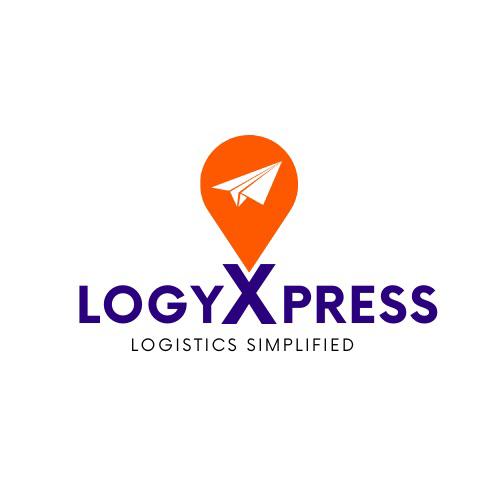E-commerce notifications play a decisive role in keeping customers informed and engaged throughout their purchasing journey. From order confirmations to shipping updates and promotional offers, timely notifications help businesses stay connected with their audience and drive conversions.
With a staggering user base exceeding 2 billion globally, WhatsApp stands as one of the foremost messaging platforms worldwide. Its user-friendly interface and end-to-end encryption make it an ideal channel for businesses to connect with customers securely. WhatsApp notifications enable businesses to deliver timely updates, promotions, and personalized recommendations directly to customers’ smartphones, increasing engagement and driving sales.
The Advantages of WhatsApp Notifications for E-commerce
Instant Communication: It enable instantaneous communication with customers, allowing businesses to deliver timely updates, promotions, and product recommendations directly to their mobile devices.
Personalization: Through WhatsApp, businesses can personalize their messages based on customer preferences, purchase history, and browsing behavior, creating a tailored shopping experience that fosters loyalty and engagement.
High Engagement Rates: With open rates exceeding 70%, WhatsApp boast significantly higher engagement rates compared to traditional marketing channels such as email or social media, ensuring that your messages are seen and acted upon.
Rich Media Support: This application supports various forms of rich media, including images, videos, and documents, enabling businesses to showcase their products in a visually compelling manner and drive conversions.
Conversational Commerce: It facilitates conversational commerce, allowing customers to make inquiries, place orders, and receive support directly within the messaging app, streamlining the purchasing process and enhancing customer satisfaction.
Cost-Effectiveness: Compared to traditional advertising channels, it offers a cost-effective solution for reaching and engaging with customers, making it an ideal choice for businesses of all sizes.
Strategies for Implementing WhatsApp Notifications
Segmentation and Targeting: Utilize customer data to segment your audience based on demographics, purchase history, and browsing behavior. By delivering targeted notifications to specific customer segments, you can increase relevance and drive higher conversion rates.
Abandoned Cart Recovery: Use this to remind customers about abandoned carts and encourage them to complete their purchase. You can include a direct link to the checkout page and offer incentives such as discounts or free ecommerce shipping to incentivize conversion.
Product Recommendations: Use its notifications to recommend products based on customer preferences and past purchases. By providing personalized recommendations, you can enhance the shopping experience and increase cross-selling opportunities.
Flash Sales and Promotions: Announce flash sales, limited-time offers, and exclusive promotions via WhatsApp notifications to create a sense of urgency and encourage immediate action. Be sure to include compelling visuals and clear call-to-action buttons to maximize engagement.
Order Updates and Tracking: Keep customers informed about the status of their orders by sending real-time updates and tracking information via WhatsApp. This not only enhances transparency but also instills confidence in the purchasing process and reduces customer inquiries.
Feedback and Support: Use WhatsApp as a platform for collecting customer feedback and providing support. Encourage customers to share their thoughts, suggestions, and concerns, and be responsive to their inquiries to foster trust and loyalty.
Integration with Chatbots: Integrate chatbots with the app to automate customer interactions and streamline the shopping experience. Chatbots can handle routine inquiries, provide product recommendations, and assist with order tracking, freeing up valuable time for your team.
A/B Testing and Optimization: Continuously monitor the performance of your notifications and conduct A/B tests to identify the most effective messaging strategies. Experiment with different formats, timing, and content to optimize engagement and conversion rates.
Best Practices for WhatsApp Notifications
Respect User Privacy: Obtain explicit consent from users before sending them notifications and adhere to applicable privacy regulations such as GDPR. Respect user preferences regarding frequency and content to avoid spamming.
Provide Value: Deliver relevant and valuable content that enriches the customer experience and provides tangible benefits. Whether it’s exclusive offers, helpful tips, or personalized recommendations, ensure that your notifications add value to the recipient.
Maintain Consistency: Establish a consistent schedule for sending notifications to maintain engagement and build trust with your audience. Avoid bombarding users with excessive messages or irregular communication patterns.
Optimize for Mobile: Design your WhatsApp messages with mobile users in mind, ensuring that they are visually appealing and easy to navigate on small screens. Use concise language, clear visuals, and prominent call-to-action buttons to maximize effectiveness.
Monitor Performance Metrics: Track key performance metrics such as open rates, click-through rates, and conversion rates to evaluate the success of your notification campaigns and utilize it to refine your strategies and improve results over time.
Future Trends and Innovations in WhatsApp E-commerce
AI and Chatbots
The integration of artificial intelligence (AI) and chatbots is poised to revolutionize WhatsApp e-commerce by enabling automated, personalized interactions with customers. AI-powered chatbots can handle inquiries, recommend products, and even process orders, thereby enhancing efficiency and scalability.
Rich Media and Interactive Content
Rich media and interactive content formats such as images, videos, and GIFs are becoming increasingly prevalent in WhatsApp messaging. Leveraging these multimedia capabilities allows e-commerce businesses to create more engaging and visually compelling messages that capture attention and drive engagement.
Incorporating Augmented Reality (AR) and Virtual Reality (VR)
The integration of augmented reality (AR) and virtual reality (VR) technologies with WhatsApp holds immense potential for enhancing the e-commerce shopping experience. By enabling customers to visualize products in real-world environments or explore virtual showrooms, AR and VR create immersive and interactive shopping experiences that drive conversion.
In conclusion, WhatsApp messaging offer e-commerce businesses a powerful tool for engaging with customers, driving sales, and building long-term relationships. By implementing WhatsApp notifications as part of your marketing strategy and following best practices, you can effectively reach your target audience, deliver personalized experiences, and maximize revenue opportunities.
